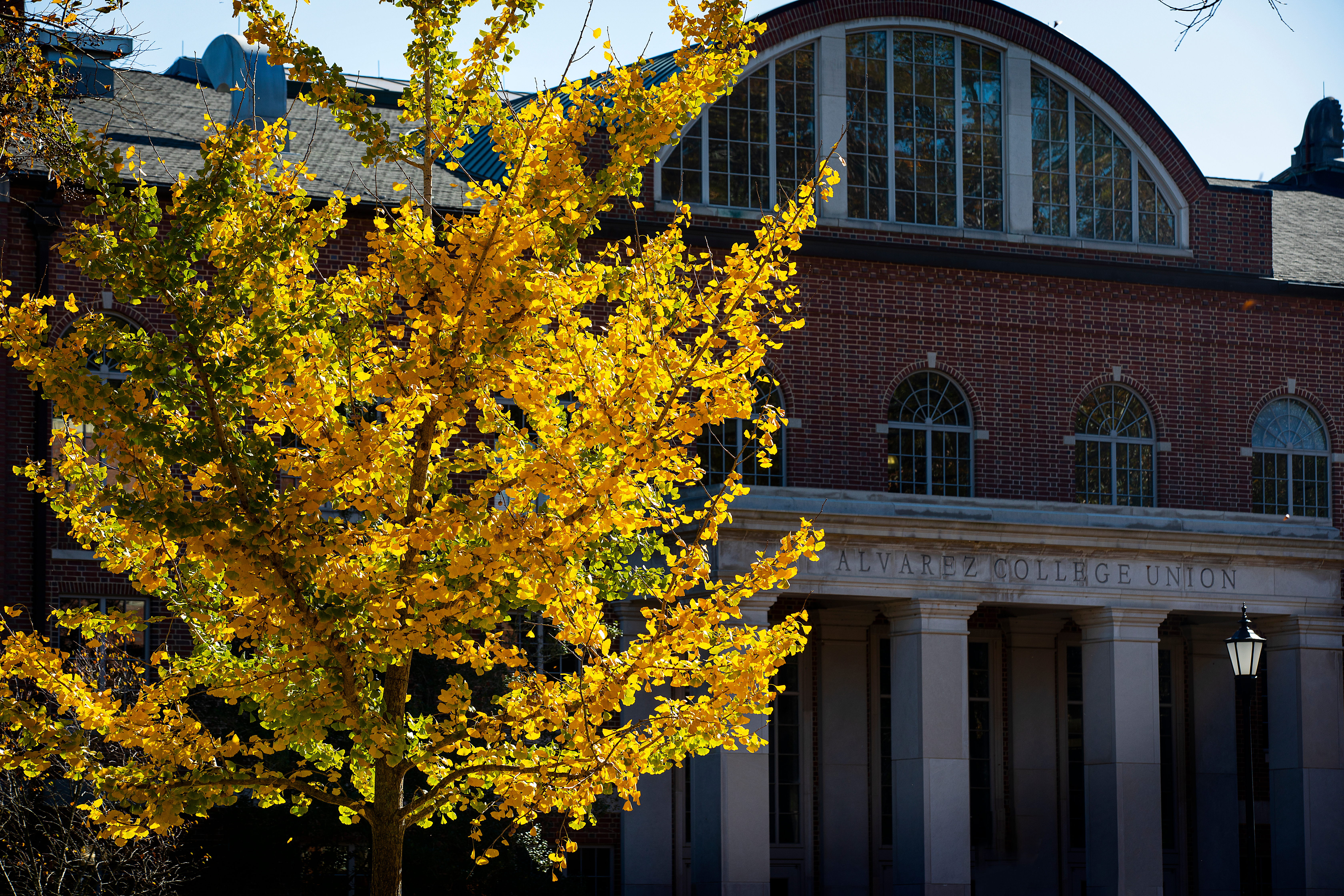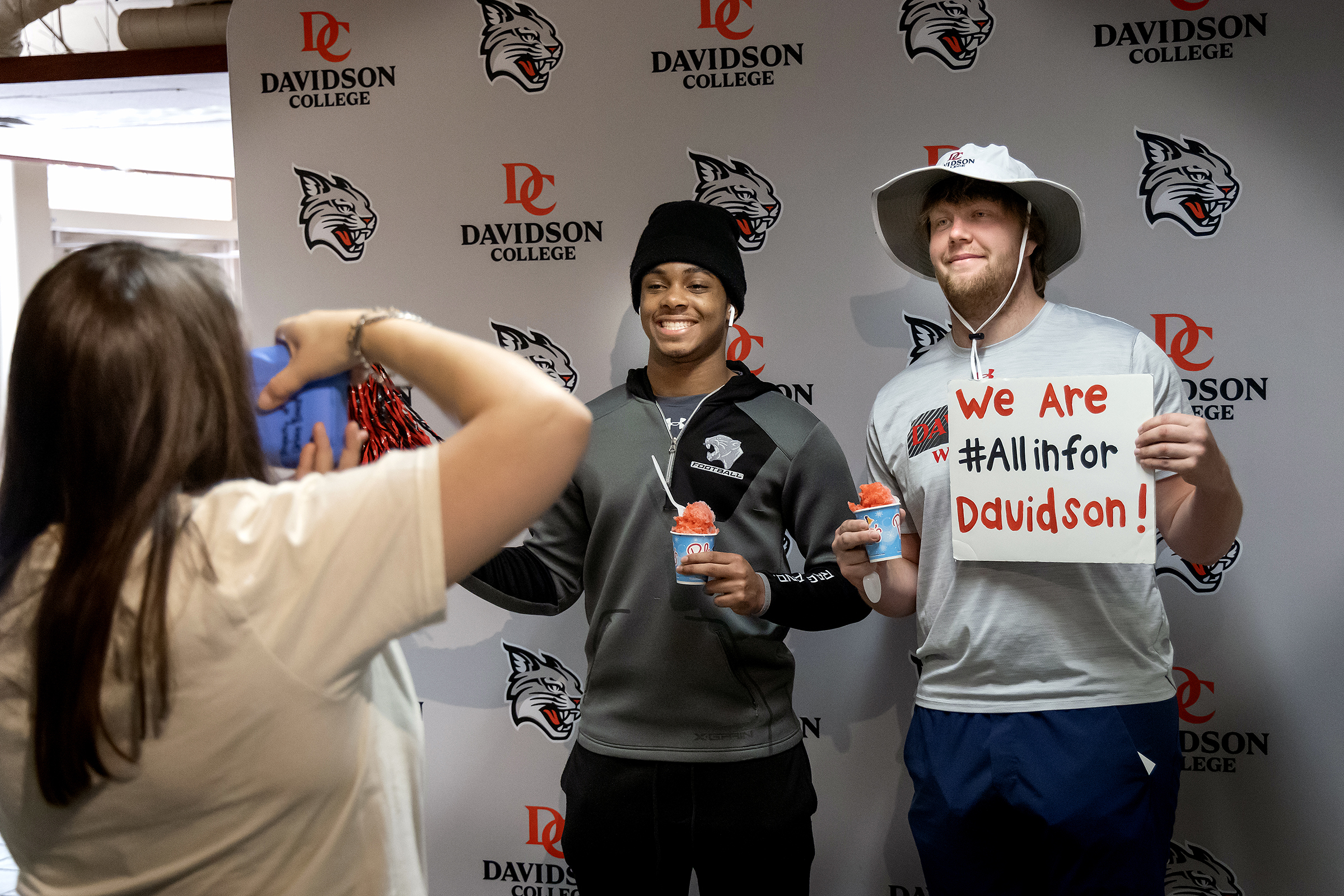Digital Initiative to Foster Innovation in the Liberal Arts
Through a new initiative at Davidson College, members of the campus community are encouraged to create projects aimed at understanding how digital learning can strengthen the residential student experience and contribute to the development of the whole person. Digital Learning Research & Design (DLRD) focuses on curricular and co-curricular experimentation and design in digital learning. The DLRD initiative provides opportunities for free inquiry, risk taking and failure.
The DLRD initiative has been supported by a $480,000 anonymous gift from a member of the college's Board of Trustees.
"Through this initiative, the college can create the time and space needed for students and educators to experiment with their own ideas for new models of education," said Kristen Eshleman, director of digital learning, research & design and director of academic technology. "As we reimagine the liberal arts, what might digital technology enable us to do that we could not do before? The simplest burning question can become a very interesting project."
For example, some of those questions might include: If a faculty member wants a city or country to become the lab or classroom, how might that be achieved? If a student prefers a coding boot camp experience to a study abroad option, how might the college support that? If we can assess the learning that happens in extra-curricular programs, can these count for credit? How can we incorporate deep theoretical exploration into student participation in real world experiences or current events? If a group of students is interested in designing and co-facilitating a course not currently offered at Davidson, how might we enable this?
Students, faculty, staff and alumni are invited to submit project proposals. Projects are to be student-centered, and should focus on innovative ideas for digital learning in the liberal arts.
"Most importantly, we will conduct research on and record the outcomes of all of these experiments," said Eshleman. "We need to know what works and what doesn't, and in a timely manner, if we want these explorations to contribute to the college's academic mission."
"Through DLRD projects, students will become more deeply engaged in conversations about their own learning," said Emily Rapport '16. "I've often wondered why, in order to do everything I want to do, it takes so much time outside of the classroom curriculum. We can explore that issue at Davidson and figure out how students might assign additional value to their education. It could lead to a culture shift in which more of our experiences are connected to what comes next."
Projects may exist within credit-bearing courses to provide the necessary space and time for the work, and to ensure that all faculty and students have the opportunity to participate. Projects will address at least one or more of the following goals:
- fostering student agency: designing projects and courses that enable students to drive their own learning;
- supporting inclusive pedagogy: experiments in teaching that benefit the diverse student body;
- connecting theory to practice: applying the liberal arts to real-world problems; or
- exploring the role of the college in lifelong learning: experiments that demonstrate relevance and connect the college with lifelong learners.
"Students are often surprised by what employers expect them to know," said Mark Sample, associate professor and director of digital studies. "Innovative thinking will take place in this space, and students will be able to demonstrate knowledge that translates to the world. It is a deliberate research process that does not end after a poster session or presentation."
Because project ideas are being solicited from all members of the campus community, DLRD is not part of a formal center or office. A steering committee will guide and support the initiative and the ideas that emerge from DLRD projects. In addition to Eshleman and Sample, the steering committee includes: Hannah Levinson, director of innovation and entrepreneurship, and Fuji Lozada, professor of anthropology and environmental studies and director of the Center for Interdisciplinary Studies.
"It's all about learning through action and failure," said Andrew Rikard '17. "DLRD is an opportunity to ask ‘what if?' and ‘how can we solve this?' without the answer being tied directly to a grade in a course. Potentially, it will result in groups of students asking how they can support each other's interests; and through collaboration and access, we can build community."
For more information about the DLRD initiative, please contact Eshleman at kreshleman@davidson.edu.



